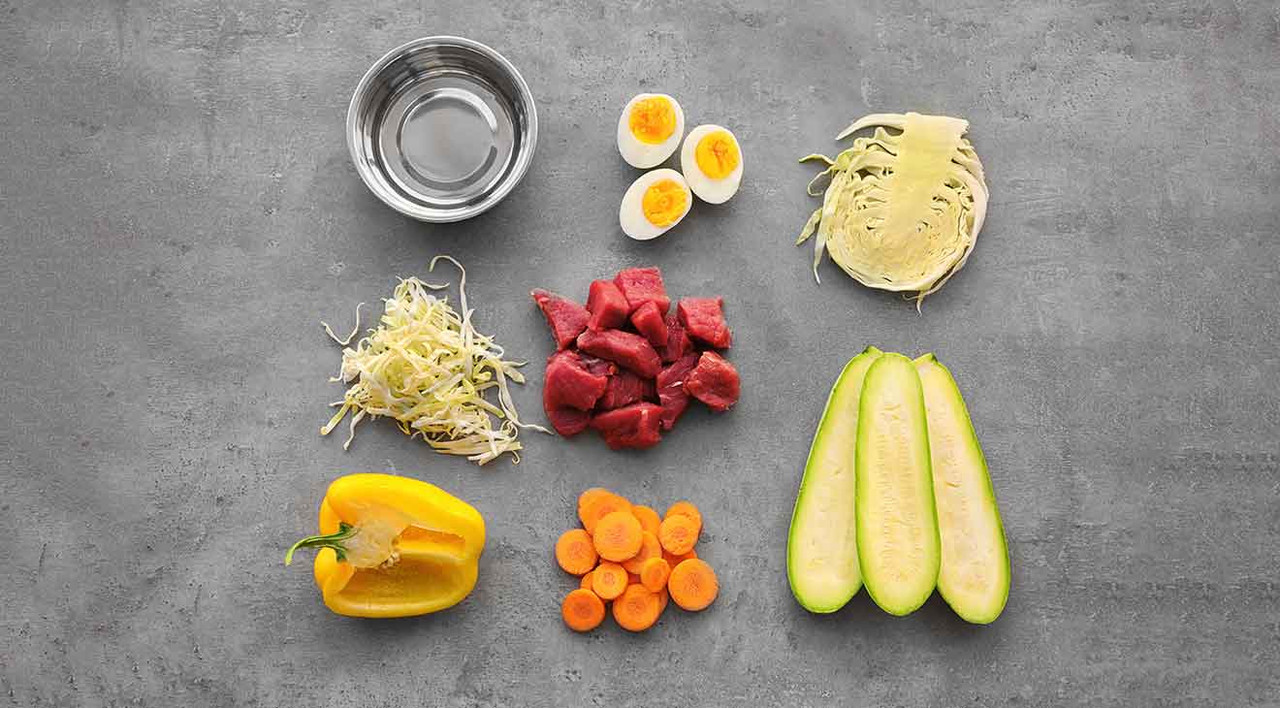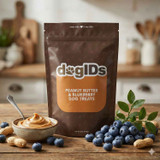5+ Diet and Nutrition Tips for Dogs
With countless options ranging from grain-free kibble to raw diets, it's easy to feel overwhelmed. Adding to the complexity is the fact that each dog has unique dietary needs based on factors like breed, age, activity level, and health conditions.
A well-rounded approach to feeding your dog involves more than just choosing the right commercial food. It includes incorporating fresh vegetables and fruits, ensuring adequate protein intake, monitoring weight, and providing proper hydration.
Additionally, it's important to be mindful of treats and snacks, avoid harmful foods, consider homemade options, and regularly rotate proteins and flavors. By paying attention to food labels, providing age-appropriate nutrition, and addressing food allergies, you can create a varied and balanced diet that supports your dog's health and well-being.
Incorporate fresh vegetables and fruits into your dog's diet.
Vegetables and fruits can be a great addition to your dog's diet, providing essential vitamins, minerals, and antioxidants. Some safe options include carrots, green beans, blueberries, and apples (without seeds). However, always research or consult your vet before introducing new produce, as some fruits and vegetables can be harmful to dogs, such as grapes, raisins, and onions.
The importance of protein.
Protein is a crucial component of your dog's diet, supporting muscle growth, tissue repair, and overall energy levels. High-quality protein sources include chicken, beef, lamb, and fish. When selecting a dog food, ensure that a specific meat source is listed as the first ingredient. Avoid products that use generic terms like "meat meal" or "animal by-products."
Monitor your dog's weight and adjust portions accordingly.
Obesity in dogs can lead to numerous health issues, including joint problems, diabetes, and heart disease. Regularly monitor your dog's weight and body condition. If you notice weight gain, consult your vet to adjust the portion sizes or switch to a weight management formula. Conversely, if your dog is underweight, you might need to increase their food intake or choose a higher-calorie diet.
Ensure your dog stays hydrated.
Proper hydration is essential for your dog's health. Always provide fresh, clean water, and ensure your dog drinks enough throughout the day. If you feed dry kibble, consider adding a bit of water or broth to the food to increase moisture intake. In hot weather, you might need to encourage your dog to drink more often or provide ice cubes as a treat.
Be mindful of treats and snacks.
Treats are a great way to reward your dog and reinforce positive behavior, but they should be given in moderation. Many commercial treats are high in calories and low in nutritional value. Opt for healthier treats like small pieces of cooked chicken, vegetables, or specially formulated low-calorie dog treats. Remember to factor treats into your dog's daily caloric intake to avoid overfeeding.
Avoid harmful foods and substances.
Some human foods and substances are toxic to dogs and should be avoided at all costs. Chocolate, caffeine, alcohol, and certain artificial sweeteners like xylitol are highly toxic to dogs. Additionally, avoid giving your dog bones that can splinter, as they pose a choking hazard and can cause internal injuries. Educate yourself on harmful foods and substances to keep your dog safe.
Consider homemade dog food options.
If you prefer more control over your dog's diet, consider preparing homemade meals. This allows you to choose high-quality ingredients and tailor meals to your dog's specific needs. However, creating a balanced diet can be challenging, so it's essential to work with your vet or a canine nutritionist to ensure your homemade meals meet all of your dog's nutritional requirements.
Rotate proteins and flavors.
Rotating proteins and flavors can help prevent food sensitivities and provide a more balanced nutrient profile. Dogs can develop allergies or intolerances to certain ingredients if they eat the same food for an extended period. By regularly switching between different protein sources and flavors, you can help keep your dog's diet varied and interesting.
Pay attention to food labels and ingredients.
Look for foods with high-quality, natural ingredients and avoid those with artificial additives, fillers, and preservatives. Ingredients are listed by weight, so the first few ingredients should be specific, identifiable sources of protein and other nutrients.
Provide age-appropriate nutrition.
Your dog's nutritional needs will change throughout their life stages. Puppies require higher levels of protein and fat to support growth, while adult dogs need a balanced diet to maintain health and energy. Senior dogs may benefit from lower-calorie foods with joint-supporting supplements like glucosamine and chondroitin. Always choose a diet that matches your dog's age and activity level.
Food allergies and sensitivities.
Food allergies and sensitivities are common in dogs and can cause symptoms like itching, digestive issues, and ear infections. If you suspect your dog has a food allergy, work with your vet to identify the offending ingredient through an elimination diet or allergy testing. Once identified, choose a diet that avoids those ingredients and opt for hypoallergenic or limited-ingredient foods.
Incorporate healthy fats.
Healthy fats are essential for your dog's skin, coat, and overall health. Omega-3 and omega-6 fatty acids, found in fish oil and flaxseed, can improve skin condition, reduce inflammation, and support brain health. Ensure your dog's diet includes sources of these beneficial fats or consider adding supplements if necessary.
Regularly review and adjust your dog's diet.
Your dog's nutritional needs may change due to factors like age, health conditions, or activity levels. Regularly review your dog's diet and make adjustments as needed. If you notice any changes in your dog's health, energy, or weight, consult your vet to determine if dietary changes are necessary.
Balanced and Nutritious.
Feeding your dog a balanced and nutritious diet is one of the most important aspects of their care. Your dog's unique needs and making informed decisions about their nutrition can help ensure they lead a healthy and happy life. Always consult with your vet before making significant changes to your dog's diet, and stay informed about the latest developments in canine nutrition.
Explore Popular Articles
-
How To Choose the Right Dog Collar (2026 dogIDs Pack Leader’s Guide)
Dec 10, 2025If you're new to the dog world, choosing a collar can feel like trying to order coffee in a new lang
-
Why We Ditched Seed Oils: The Story Behind Our New Dog Treats
Dec 03, 2025We all know that feeling. You’re standing in the pet aisle, holding a bag of dog treats, squinting a
-
The Ultimate Guide to Silent Dog ID Tags: How to Stop the 'Jingle' Forever
Nov 26, 2025Image generated by Google Gemini Not to make light of a serious issue like noisy dog tags in the ho





